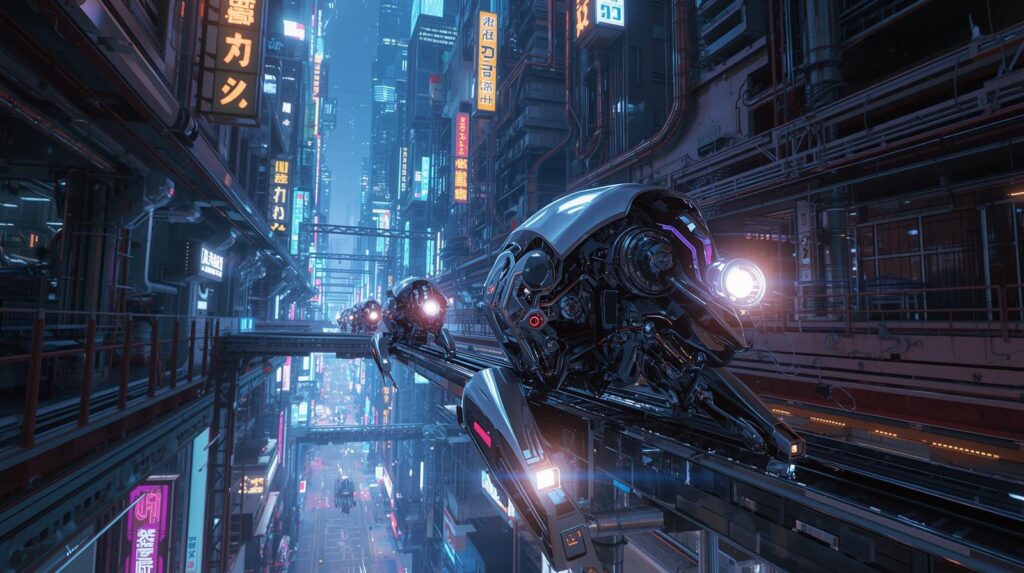Intelligent robotics has emerged as one of the most transformative technologies of the modern era, reshaping operations across multiple sectors. By integrating artificial intelligence (AI), machine learning (ML), advanced sensors, and real-time analytics, these robots go beyond traditional automation to offer adaptive, collaborative, and highly efficient solutions. Among the industries leading this transformation are manufacturing, healthcare, and logistics, each leveraging intelligent robotics to address unique challenges, improve productivity, and deliver superior outcomes.
Download PDF Brochure @ https://www.marketsandmarkets.com/pdfdownloadNew.asp?id=99226522

Intelligent Robotics in Manufacturing
The manufacturing industry has been at the forefront of adopting robotics, and the integration of intelligence is elevating its impact to new heights. Intelligent robots are increasingly deployed to handle tasks that require precision, speed, and adaptability. Unlike conventional industrial robots programmed for repetitive tasks, intelligent robots can analyze their environment, make decisions in real-time, and learn from their operations.
In modern factories, collaborative robots, or cobots, are enabling human-robot interaction without the need for extensive safety barriers. They assist workers in assembly, welding, painting, and quality inspection, reducing strain and minimizing errors. Advanced vision systems and AI-driven analytics empower these robots to detect defects, adapt to product variations, and switch tasks quickly, supporting the trend toward mass customization. Predictive maintenance powered by intelligent robotics ensures minimal downtime by anticipating equipment failures before they occur, further enhancing operational efficiency. As manufacturers embrace Industry 4.0, intelligent robotics is becoming a cornerstone of smart factories worldwide.
Intelligent Robotics in Healthcare
Healthcare is experiencing a paradigm shift through intelligent robotics, which is revolutionizing patient care, surgical precision, and operational efficiency. Surgical robots, guided by AI and enhanced imaging technologies, are enabling minimally invasive procedures with higher accuracy, reducing recovery times and improving patient outcomes. These systems can process real-time data during operations, assisting surgeons with decision-making and reducing the risk of complications.
Beyond the operating room, intelligent robotics is transforming rehabilitation and elderly care. Robots equipped with sensors and AI algorithms support patients during physical therapy, monitoring progress and adjusting treatment programs dynamically. In eldercare facilities, companion robots provide assistance with daily activities, medication reminders, and emotional support, addressing the growing demand for senior care amid an aging population. Additionally, autonomous robots in hospitals manage logistics, transporting medications, lab samples, and medical supplies, thereby freeing healthcare professionals to focus more on patient care. The integration of robotics in healthcare not only enhances clinical outcomes but also improves the overall efficiency of medical institutions.
Intelligent Robotics in Logistics
The logistics industry is undergoing rapid digital transformation, and intelligent robotics is at the core of this evolution. With the surge in e-commerce and the demand for faster, error-free deliveries, warehouses and distribution centers are increasingly relying on autonomous mobile robots (AMRs) and robotic arms. These systems optimize inventory management, automate picking and packing, and streamline material handling processes.
AMRs equipped with AI-driven navigation systems can operate in dynamic environments, avoiding obstacles, adjusting routes in real-time, and working collaboratively with human workers. Robotic sortation systems accelerate order fulfillment by categorizing and dispatching items efficiently, while robotic arms ensure precise handling of fragile or high-value goods. In last-mile delivery, drones and ground-based delivery robots are beginning to play a role, offering cost-effective and timely solutions in urban and remote areas.
The use of intelligent robotics in logistics results in significant cost savings, improved accuracy, and faster turnaround times. As global supply chains become more complex, these robotic solutions are critical for maintaining resilience and meeting evolving customer expectations.
Frequently Asked Questions (FAQs) on the Intelligent Robotics Market
1. What is the Intelligent Robotics Market?
The Intelligent Robotics Market refers to the industry focused on the development and deployment of robots integrated with advanced technologies such as artificial intelligence (AI), machine learning (ML), computer vision, and sensor technologies. These robots are designed to perform tasks autonomously, adapt to changing environments, and improve efficiency in sectors like manufacturing, healthcare, logistics, agriculture, and defense.
2. What is driving the growth of the Intelligent Robotics Market?
The market is primarily driven by increasing automation in industries, advancements in AI and ML, the rising need for cost-efficient and precise operations, labor shortages in several sectors, and the growing adoption of Industry 4.0 technologies. Additionally, demand for autonomous mobile robots, collaborative robots (cobots), and AI-powered service robots is accelerating global market expansion.
3. What are the major applications of intelligent robotics?
Intelligent robotics is widely used in manufacturing and industrial automation, healthcare (surgical robots, rehabilitation robots), logistics and supply chain (warehouse automation, delivery robots), agriculture (autonomous tractors, crop monitoring), defense and security (unmanned vehicles), and retail for customer service and inventory management.
4. Who are the key players in the Intelligent Robotics Market?
Major players in the Intelligent Robotics Market include ABB, FANUC, KUKA, Yaskawa Electric Corporation, Omron, Universal Robots, iRobot, SoftBank Robotics, and Boston Dynamics. These companies are investing heavily in R&D to develop innovative robotic solutions and expand their global presence.
5. What are the future trends in the Intelligent Robotics Market?
Future trends include the integration of AI-powered decision-making, growth in collaborative and humanoid robots, increased use of cloud robotics and edge AI, enhanced human-robot collaboration, and the adoption of 5G connectivity for real-time robotic operations. Sustainability and energy-efficient robotics will also gain prominence in the coming years.
6. What challenges does the Intelligent Robotics Market face?
Key challenges include high implementation costs, cybersecurity risks, technical complexities in integrating robotics with existing systems, regulatory compliance issues, and concerns over workforce displacement due to automation. Addressing these challenges will be crucial for sustained market growth.
See Related Semiconductor Reports:
Testing, Inspection, and Certification (TIC) Market by Service Type (Testing, Inspection, Certification), Source (In-house, Outsourced), Application (Consumer Goods & Retail, Agriculture & Food, Chemical, Energy & Power) – Global Forecast to 2030Home Automation System Market by Lighting Controls, Smart Speakers, Entertainment Controls, HVAC Controls, Security & Access Controls, Wired, Wireless, Behavioral, Proactive, Multi-family Residence, Single – family Residence Global Forecast to 2029
